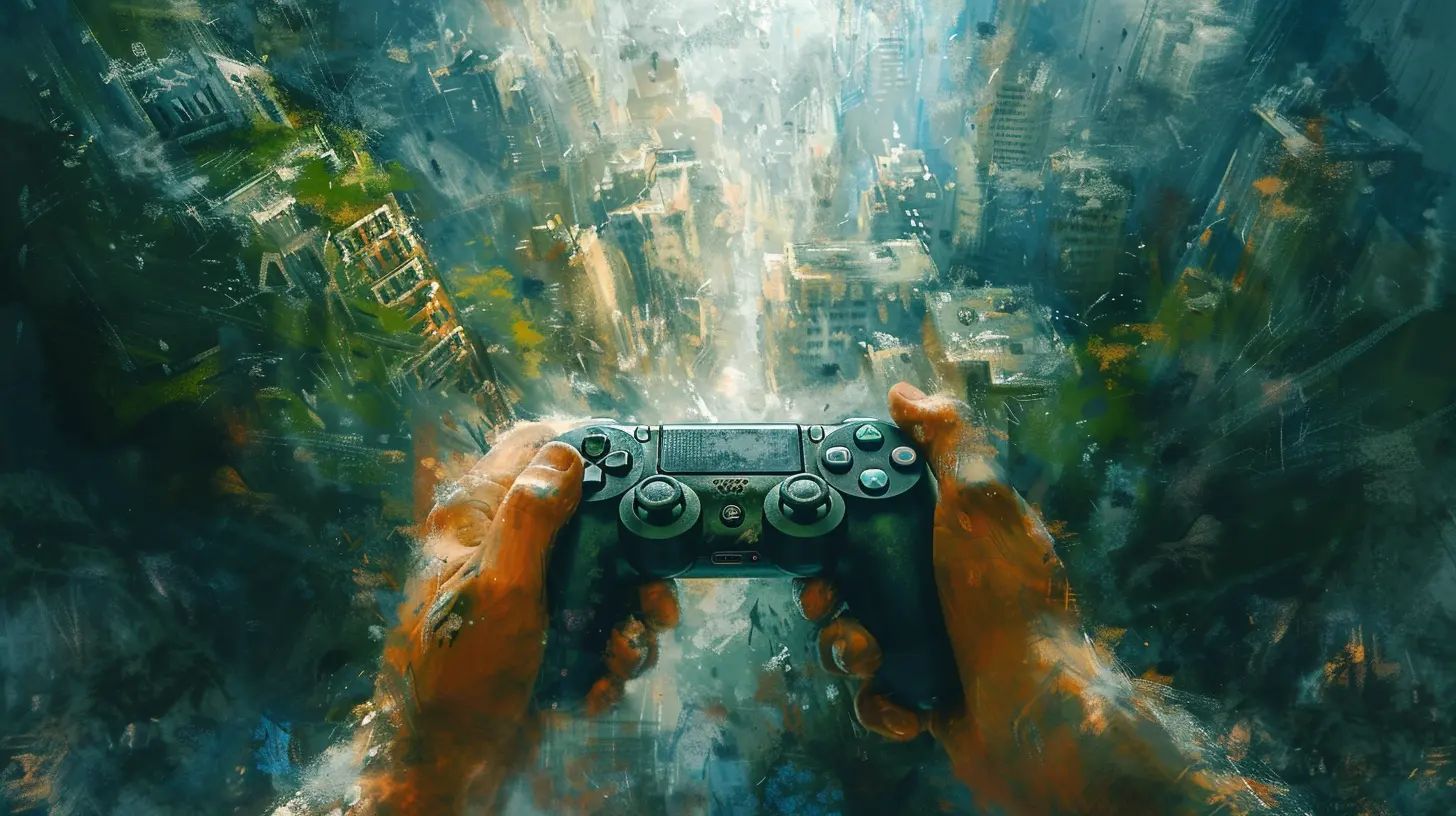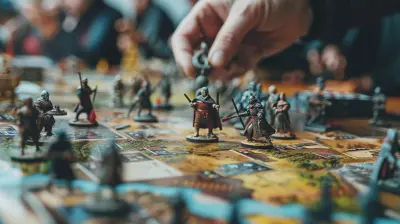Can Pay to Win Games Be Ethical?
6 August 2025
Let's face it—gaming isn't what it used to be. Long gone are the days when you'd buy a game once, pop it in, and just play. Nowadays, games—especially online multiplayer and mobile ones—are often free to play... until they’re not. That’s where Pay to Win (P2W) mechanics come into play. If you've ever raged in a match because someone beat you with gear or power-ups you could never afford without breaking the bank, you've already tangled with the P2W beast.
But here's the million-dollar question: can Pay to Win games actually be ethical?
Let’s break it down.
What Is a Pay to Win Game?
Before we go full philosopher mode, it’s important to define what we’re dealing with.A "Pay to Win" game is one where players can gain significant in-game advantages by paying real money. These advantages might include:
- Stronger weapons
- Faster progress
- Exclusive characters
- Enhanced stats
- Early access to game-changing content
And the kicker? These boosts often give paying players a leg-up that can’t realistically be matched by non-paying users, no matter how much time they grind.
It's like showing up to a go-kart race and realizing the other guy paid for a Formula 1 car.
The Core Ethical Dilemma
So, is it fair? Is it ethical? That depends on how you look at it.There are two main sides to this argument:
1. The Case Against P2W Games
Let’s be real—many gamers hate Pay to Win models. Why? Because they break the idea of fair competition.Imagine a chess match. Now imagine that one player pays money to start with two queens. That’s not chess anymore.
Here’s where it gets ethically sticky:
- Unlevel Playing Field: Cash = power. Skill often takes a back seat.
- Encourages Gambling-like Behavior: Loot boxes, gacha systems, and randomized rewards aren’t just shady—they blur the line between gaming and gambling.
- Preys on Younger Players: Kids (and teens) are impressionable and may not grasp the value of money. Games that push microtransactions can exploit that.
- Punishes Time-Rich, Money-Poor Players: Not everyone has disposable income. But tons of people are willing to invest time. In P2W games, that time can feel worthless.
Bottom line? P2W can erode the very spirit of gaming.
2. The Case For P2W Models
Now, before we start lighting torches and grabbing pitchforks, let’s give the devil its due. P2W games can make sense under some circumstances.Here’s why:
- Games Need to Make Money: Especially free-to-play games. Developers have bills to pay, families to feed, servers to run.
- Time vs. Money Is a Tradeoff: Some players are time-poor but cash-rich. Others are the opposite. Why not let each group play the way that works for them?
- Optional Doesn’t Mean Forced: If a game can be played and enjoyed without paying, some argue that spending money is an optional convenience, not a dirty trick.
- Supports Future Content: Those who pay help fund updates, expansions, and new features for everyone—even the freeloaders.
So, while the ethics can be questionable, the business case? It’s rock-solid.
Where Do We Draw the Line?
Just like not all villains twirl mustaches, not all monetization is evil. There's a fine line between "paying for convenience" and "paying to dominate."So how do we distinguish ethical P2W from exploitative ones?
Ethical P2W Traits:
- Transparency: Players know exactly what their money gets them.- No Hidden Odds: Gacha and loot box mechanics reveal drop rates.
- Non-Essential Advantages: Paid perks help but don’t guarantee victory.
- Free Routes Still Work: Non-paying players can still achieve the same rewards, given more time.
Unethical P2W Traits:
- Aggressive Monetization: Constant pop-ups, limited-time offers, and guilt-tripping notifications.- Paywalls: Progress is gated behind mandatory payments.
- Skill Is Useless: No matter how good you are, you can’t outplay someone's wallet.
- Randomized Rewards with No Guarantees: Spending money feels more like spinning a roulette wheel than making a smart purchase.
At the end of the day, ethical P2W design respects the player. Unethical design manipulates them.
Real-World Examples: The Good, The Bad, and the Ugly
Let’s put theory into practice. Here are a few examples that show both sides of the coin:The Good: Warframe
Warframe is a free-to-play game that’s surprisingly generous. You can earn almost everything in-game with time and effort. Yes, you can pay to speed things up, but paying doesn’t make you invincible. It’s more about convenience.That’s a model a lot of players can respect.
The Bad: Clash of Clans
Ah, the mobile money pit.Clash of Clans lets you build and battle, but waiting times are obscene—until you pay, of course. The game’s design nudges you toward buying gems to speed things up. While it’s not outright evil, it toes the line.
The Ugly: Star Wars Battlefront II (2017 Launch)
This is the poster child for how bad it can get.When EA launched Battlefront II, gamers were furious. Iconic characters like Darth Vader were locked behind insane grinds—unless you paid real money. It was the perfect example of “pay or suffer.” The backlash was so loud, EA had to overhaul the entire system.
Gamers don’t forget.
What Do Players Actually Want?
Let’s not overthink it—players just want a fair and fun experience.They’re cool with spending money, as long as it feels worth it. Cosmetic skins? Sure. Time savers? Fine. Game-breaking weapons? That’s where the mood shifts.
The ideal model? Something like this:
- Free to play without feeling punished
- Optional purchases that enhance but don’t dominate
- Balanced matchmaking to prevent wallet warriors from rofl-stomping newbies
Basically, don’t sell power. Sell perks.
The Role of Regulation
Now here’s where things get spicy.Governments are starting to look at microtransactions, especially when they resemble gambling. Countries like Belgium have already banned loot boxes in some games. Others are considering age-gating or transparency laws.
Will we see full regulation of P2W mechanics? Maybe. The industry’s definitely on notice.
Game devs might have to clean up their act before someone else does it for them.
Can Ethics and Profits Coexist?
Here’s the kicker: yes, they can.There are plenty of games that make bank without pulling shady moves. Games like Fortnite and Apex Legends rake in millions (if not billions) just by selling cosmetics. No stats, no power-ups, just drip.
So why don’t more games take the high road?
Well, because the low road is often quicker and more profitable—at least in the short term. But when you burn your audience’s trust, what happens next?
Games like Battlefront II show that backlash can be brutal. Reputation is hard to earn and easy to kill.
Final Thoughts
So, can Pay to Win games be ethical?Honestly… yes, but only under the right conditions. If they respect the player, provide clear value, and avoid manipulative tactics, they can absolutely walk the ethics tightrope.
But it’s a slippery slope. And once trust is broken, it's tough to glue it back together.
From a player’s perspective? Always read the fine print. Always keep your wallet in check. And most importantly—if a game starts feeling more like a money trap than fun, maybe it’s time to uninstall.
After all, games are supposed to be an escape—not a second job with an entry fee.
all images in this post were generated using AI tools
Category:
Pay To Win GamesAuthor:

Audrey McGhee
Discussion
rate this article
2 comments
Edith McTier
Ethics thrive when skill surpasses wallet; choose wisely!
October 31, 2025 at 5:59 AM

Audrey McGhee
Thank you for your insightful comment! Balancing skill and financial investment is crucial for fostering ethical gameplay in pay-to-win environments.
Blade Shaffer
Pay-to-win models undermine fair competition, prioritizing profit over player experience and potentially alienating loyal audiences.
August 16, 2025 at 4:52 AM

Audrey McGhee
Thank you for your insightful comment! I agree that pay-to-win models can compromise fair competition and player experience, raising important ethical concerns in the gaming industry.


